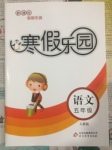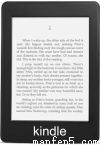题目内容
书面表达
假设你是李明,你想邀请你的笔友Tony来益阳旅游。请给他写一封信,为他介绍你的家乡益阳。要点如下:
1. 空气和水质量好,绿化面积大,环境未被破坏,气候宜人,是全国宜居城市;
2. 民风淳朴,益阳人民热情好客;
3. 特色食物与景点介绍,如擂茶,周立波故居等。
注意:1. 词数100左右;
2. 切勿逐字翻译,可适当增加细节,以使行文连贯。
参考词汇:擂茶grinding tea 周立波故居 former residence of Zhou Libo
___________________________________________________________________________
___________________________________________________________________________
___________________________________________________________________________
___________________________________________________________________________
___________________________________________________________________________
___________________________________________________________________________
练习册系列答案
 寒假乐园北京教育出版社系列答案
寒假乐园北京教育出版社系列答案
相关题目


